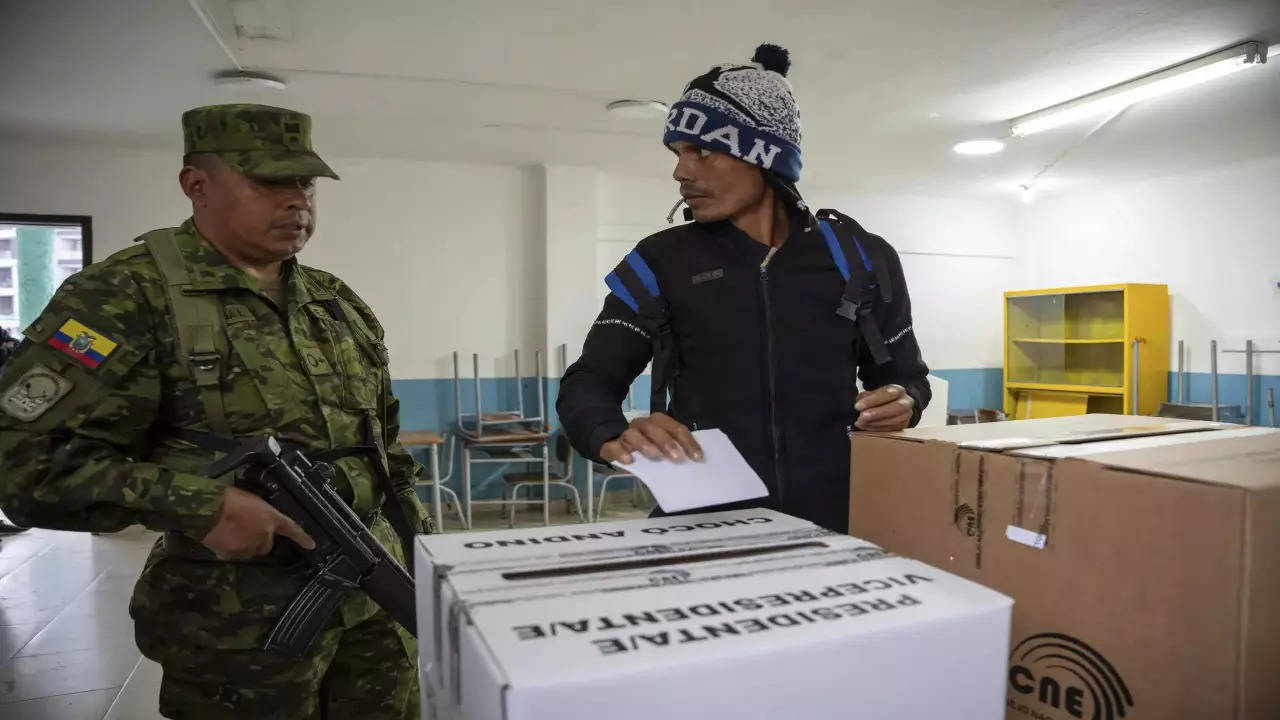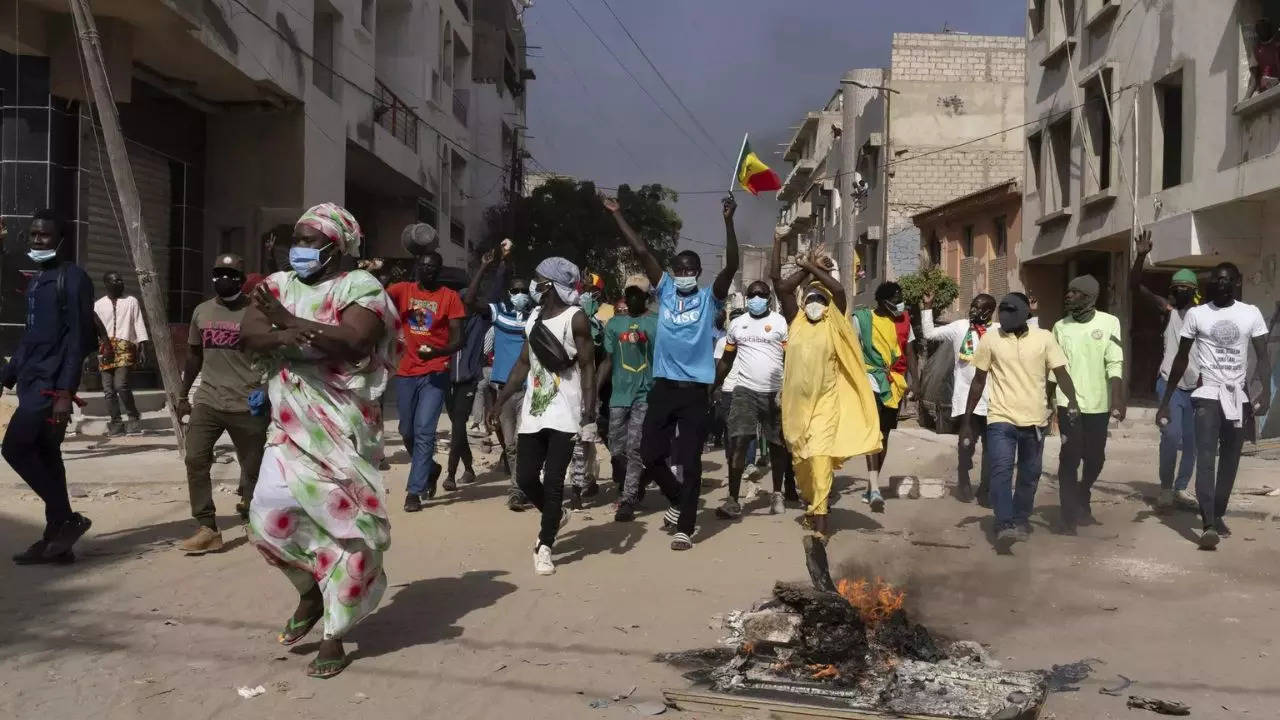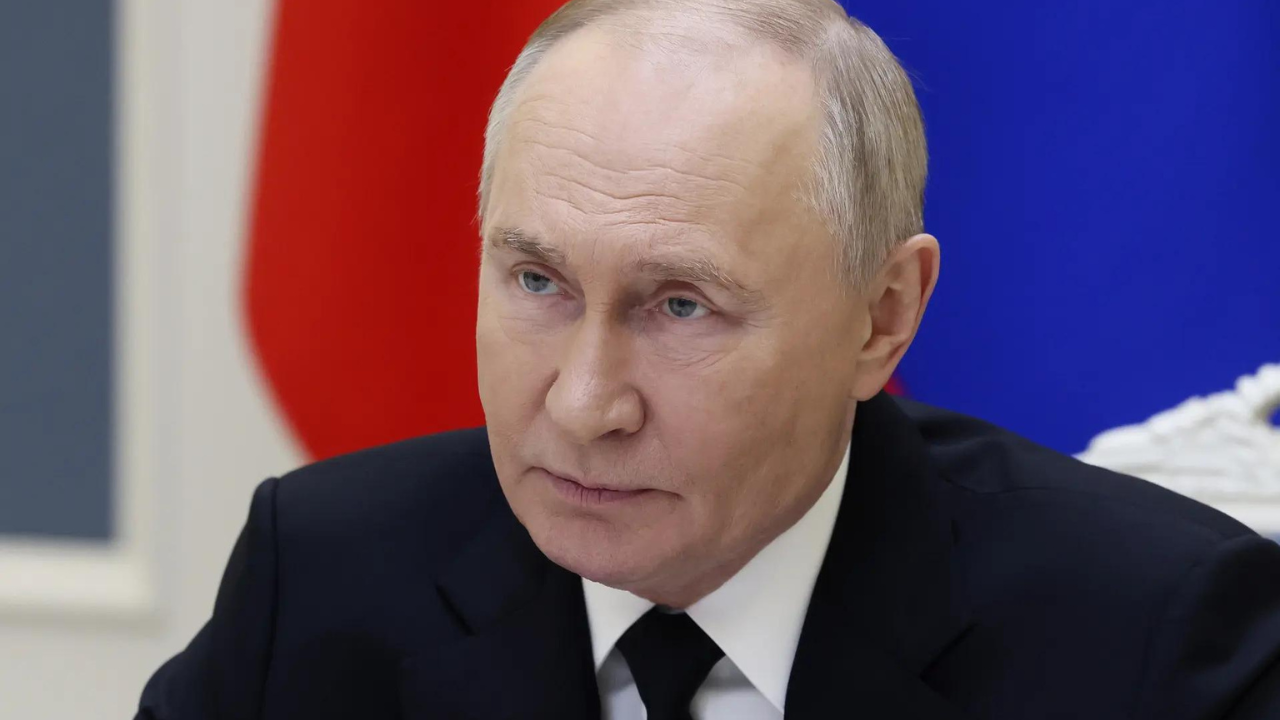Georgian President Seeks Europe's Support As She Defies Her Own Government
Georgia's president, locked in a standoff with her own government, appealed to European countries on Monday to confront what she described as a Russian attempt to impose control on her nation.

Georgia's president, locked in a standoff with her own government, appealed to European countries on Monday to confront what she described as a Russian attempt to impose control on her nation.
President Salome Zourabichvili was speaking after a fourth night of clashes between protesters and police after the governing Georgian Dream party announced last week that it was suspending talks on joining the European Union.
Critics saw that as confirmation of a Russian-influenced shift away from pro-Western policies and back towards Moscow's orbit, something the ruling party denies.
"We want our European destiny to be returned to us," Zourabichvili, who has personally remonstrated with riot police, told France Inter radio. "This is the revolt of an entire country."
Zourabichvili, whose powers are mainly ceremonial, said Russia, already at war in Ukraine, was conducting a "hybrid strategy" against Georgia and other countries such as Moldova and NATO and EU member Romania.
"There is a very strong need for very clear moral and political support" from Europe, said the 72-year-old president, who was born in France to Georgian parents and once served as French ambassador to Georgia.
Kremlin spokesman Dmitry Peskov denied Russia was interfering in the situation in Georgia, which he compared to the 2014 "Maidan" revolution in Ukraine that overthrew a pro-Russian president.
Former Russian president Dmitry Medvedev warned on Sunday that Georgia was "moving rapidly along the Ukrainian path, into the dark abyss", predicting it would end "very badly".
The United States and the EU have voiced alarm at what they see as democratic backsliding by Georgia, a South Caucasus country of 3.7 million people that lies at the intersection of Europe and Asia and was once part of the Soviet Union.
The government, which earlier this year enacted a law against "foreign agents" and introduced curbs on LGBT rights, say it is acting to protect Georgia against outside interference and prevent it from being dragged, like Ukraine, into a war with Russia.
Prime Minister Irakli Kobakhidze accused the opposition of "coordinated violence" aimed at overthrowing the constitutional order.
FIREWORKS AND TEAR GAS
On Sunday night, thousands of protesters gathered again in the capital Tbilisi and some tossed fireworks at police, who responded with volleys of water cannon and tear gas.
"I'm here for a very simple reason, to defend my European future and the democracy of my country," said one of the demonstrators, Nikoloz Miruashvili.
Some protesters stayed out all night, but police eventually ended the standoff by moving them away from the parliament building.
Georgia's interior ministry said 21 police officers had been injured in the overnight protest, with 113 hurt since the beginning of the current unrest.
Scores of protesters have also been injured in recent days, and the United States has condemned what it called the excessive use of police force.
Georgia's public ombudsman said 124 out of 156 people arrested at rallies had complained of the police using violence against them, calling this a "very disturbing number".
Zurab Japaridze, a leader of the opposition movement Coalition for Change, was briefly detained by police but later posted on social media that he had been released.
Hundreds of diplomats and civil servants have signed open letters protesting the decision to suspend talks with the EU and stop receiving any funds from the bloc for four years. At least four Georgian ambassadors have resigned.
Ilia Topuria, a martial arts fighter with a major following in the country, wrote in an Instagram post: "I am opposed to the decision to terminate our accession negotiations to the European Union. I am ashamed to see how the children of Georgia are treated. This is not called freedom."
Zourabichvili says she will not step down as president when her term expires this month because the parliament that will select her successor was chosen in October elections that the opposition says were rigged.
The election commission says the vote was fair. Prime Minister Kobakhidze on Sunday said Zourabichvili was reacting emotionally to the opposition's election defeat and would have to leave the presidential palace at the end of the month.
(Except for the headline, this story has not been edited by NDTV staff and is published from a syndicated feed.)



































![Safari Thorium Neo 8-Wheel Luggage Set Trolley Bags (Set of 3) at just Rs. 5,599 [MRP 29,100]](https://savefree.in/uploads/images/202409/image_870x580_66f63845060f0.webp?#)












![Handmade Brown Mango Wood Chopping Board At just Rs. 89 [MRP 599]](http://savefree.in/uploads/images/202303/image_870x580_641bf7e9c2206.jpg?#)


